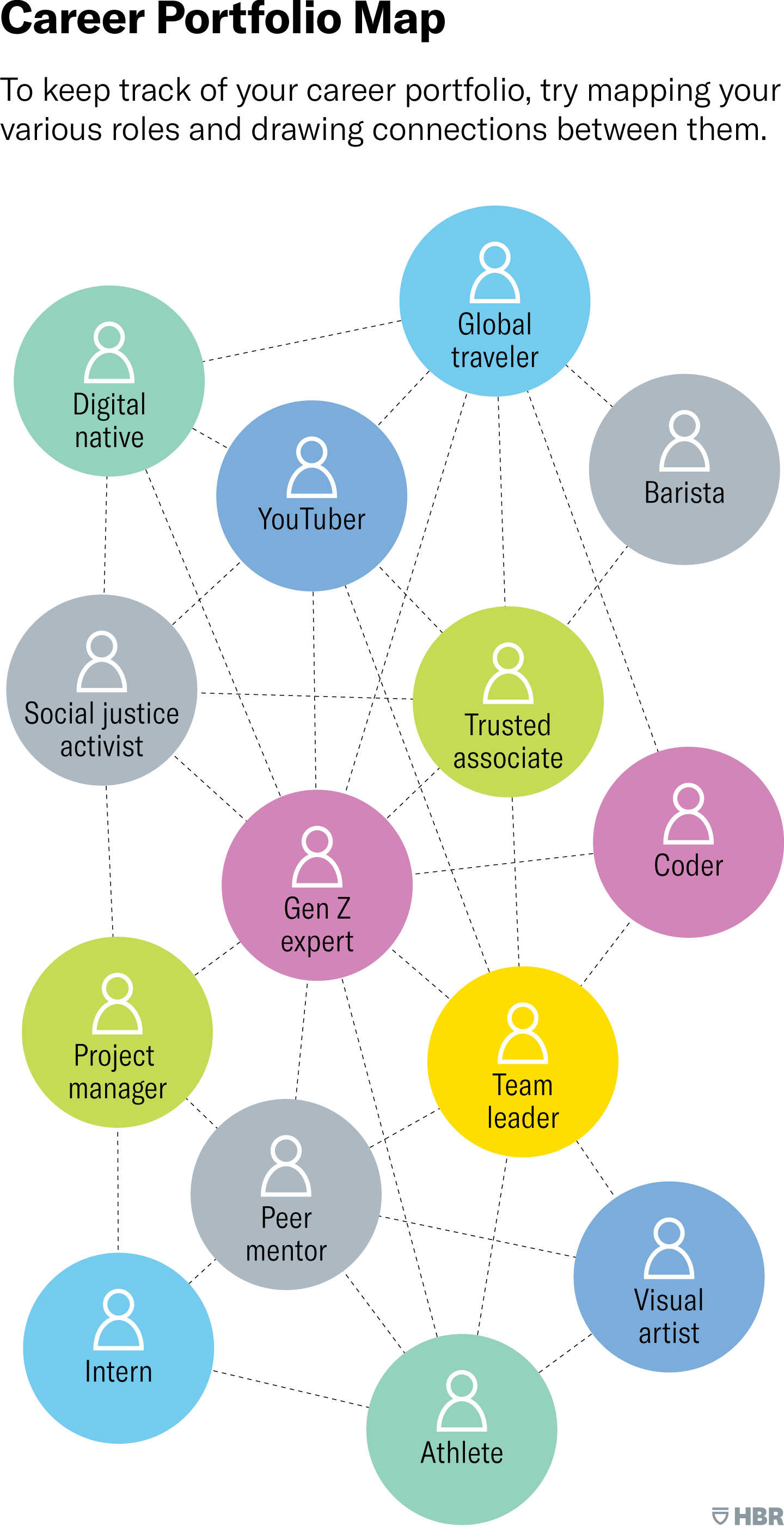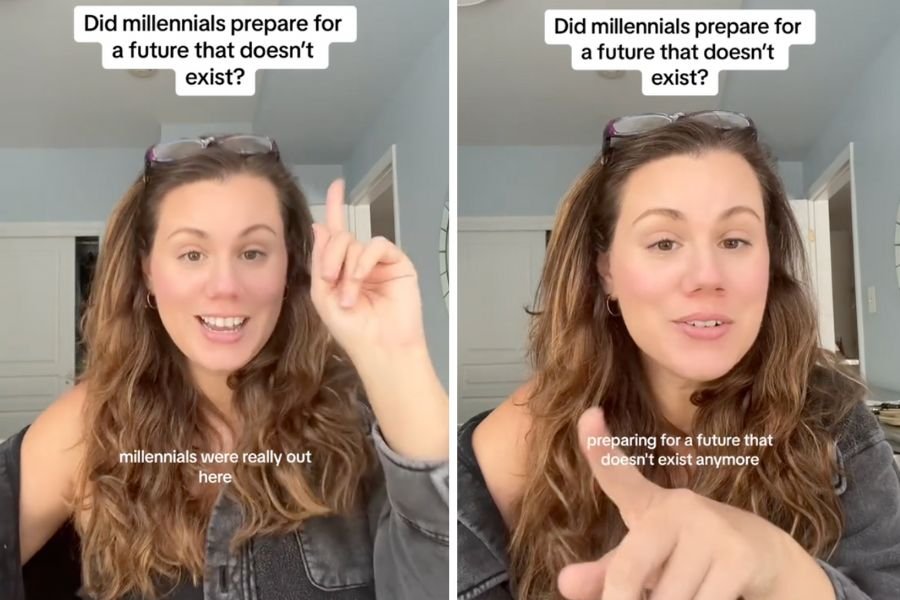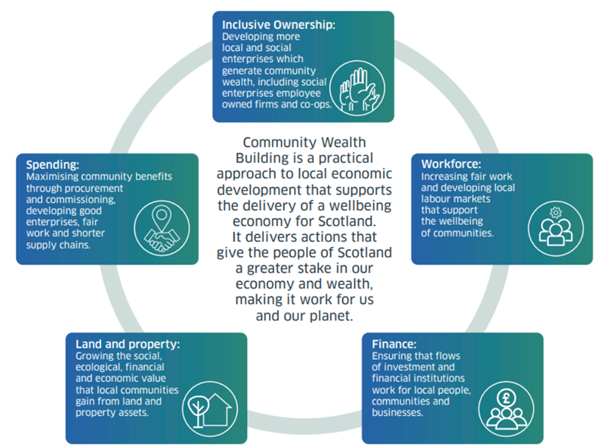Listen, we’ve all heard a millennial woefully bemoan the fact that their generation was not set up to thrive in the actual work environment that awaited them in adulthood (.i.e. it didn’t run on hopes, dreams, or even that fancy college degree). But back in September of 2024, New York-based career coach Janel Abrahami gave fresh insight into what she calls the “millennial career crisis.”
“Millennials were really out here preparing for a future that doesn’t exist anymore,” Abrahami began in a clip posted to her TIkTok. “We grew up hearing either follow a passion or just go to a good school to get a good job, and you’ll be set.”
“Even if we had the privilege to do either of those things,” she continued, “we are still out here, like 10ish years later, with the very bleak reality that neither a traditionally good 9-to-5 job nor following a passion is enough to be set.”
She went on to say how corporate jobs are no longer “secure,” as even the highest performers are not necessarily safe from being laid off if the company chooses to downsize, so the former common wisdom of “just being good at your job and keeping your head down” sort of no longer applies.
Furthermore, if a millennial is looking for a new job, Abrahami said that the market is so “competitive and slow” that it’s a nearly impossible endeavor to find something that is an actual fit. Of course, with all these headlines of ghost jobs and long, drawn out job interviews and complicated resume algorithms, this is something we’re all at least partially aware of. And if you’re experiencing this firsthand right now…my heart goes out to you, truly.
The last seemingly viable option is entrepreneurship or freelancing, which Abrahami noted is “an option” for some of us, but often all the hustle and grinding involved is “detrimental” to our mental health.
Okay, this sounds a little bleak, BUT, Abrahami wants people to understand that if they’re feeling “tired, confused, or defeated,” that it’s not necessarily a reflection of any personal shortcoming, it is simply because “we were following a manual to build an object that is now obsolete.”
One way to combat this career crisis (which applies to millennials, Gen Zers, and Gen Xers alike) is to create what Abrahami calls a “portfolio career.” In a different TikTok video, she acknowledged how portfolio careers can look like more hustle culture in disguise, but in her opinion, it’s the ultimate way to “create multiple income streams,” break free from a 9-5, and have more freedom in general.
Abrahami’s own portfolio career includes everything from writing and content creation to consulting to leading workshops and hosting brand events, which is, she admits, “a lot of work” but also aligns with her authentic values and unique strengths. She also noted that the key to avoiding burnout with a portfolio career is setting proper boundaries so that you’re not constantly chasing.
As far as how to begin building that career portfolio, one suggestion is to keep a list of not only professional experiences, but identity-shaping experiences from your everyday life. If, for example, you’ve been passionately involved in activism, or have a creative skill you’ve pursued recreationally for a long time, include it. Honestly, what millennial hasn’t tried to create a resume purely off of our personal interests? We’ve got this! Some might choose to actually draw out their portfolio and map out the potential connections between various skills, roles, or experiences. That way you’ve got a broad perspective right there on the page.

In addition, Abrahami offers the following tips:
1. Redefine Success on Your Own Terms
Many millennials are stuck chasing outdated career milestones (e.g., six-figure salary, director title by 30, “dream job” stability). Instead of measuring success by external validation, define what a fulfilling career actually looks like for you—whether that’s impact, flexibility, financial growth, or creative freedom.
2. Stop Letting Your Resume Dictate Your Future
A common trap: believing your past experience limits your future options. The reality? Skills are transferable, and career pivots are more common than ever. Focus on the skills and strengths that energize you, and find ways to apply them in new industries or roles.
3. Learn to Negotiate (Not Just Salary, But Your Role Itself)
Many millennials feel undervalued because they accept the first offer or take on more responsibilities without compensation. Learn to negotiate beyond salary—remote work options, job scope, learning opportunities, and benefits all contribute to job satisfaction and long-term career health.
4. Prioritize Networking (Before You Need It)
A mistake many make? Only networking when they’re job hunting. Build relationships continuously—engage with industry leaders, join professional groups, and contribute value to your network. Your next opportunity will likely come from who you know, not just what you do.
5. Embrace Experimentation (Instead of Waiting for Clarity)
Many feel paralyzed, waiting for the “perfect” career path to reveal itself. Instead, treat your career like an experiment—try new roles, take on projects outside your comfort zone, and iterate based on what energizes you. Action breeds clarity, not the other way around.
6. Address Burnout Before It Becomes a Career Crisis
Many millennials push through toxic jobs, thinking burnout is just part of “paying dues.” Instead, recognize the warning signs early—lack of motivation, exhaustion, detachment—and take steps to course-correct. Sometimes, a career pivot isn’t about escaping a job but about redesigning how you work.
Hopefully Abrahami’s video empowers you, rather than instills more fear. While it certainly is difficult out there, perhaps a lot of our collective angst comes from trying to play by rules in a game that’s clearly changed. Oh, and giving yourself some grace couldn’t hurt. Not easy when livelihoods are on the line, but still.































